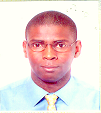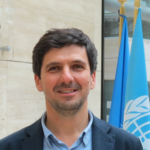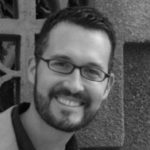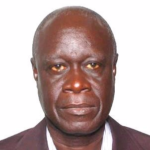
The Platform for Agricultural Risk Management (PARM) along with the Forum for Agricultural Risk Management in Development (FARM-D) organized a webinar on "Senegal Risk Assessment: a look into the livestock and fisheries sector”, on 15th March 2017. This webinar was an occasion to discuss the findings of the recent assessment study with authors.
About the Webinar:
The agricultural sector in Senegal faces many risks, from climate change and weather to volatile prices, animal and plant pest and diseases. In order to manage them, a common understanding of the major risks affecting the agricultural sector and rural population livelihoods was needed by the country stakeholders. In 2014, the World Bank contributed to this goal by publishing a study on agricultural risks in Senegal, which was mostly focused around cereal production. PARM, in agreement with the government, decided to launch two studies on the sub-sectors of livestock and fisheries, to complement the work of the World Bank and provide a complete analysis of the risks present in the country. In particular:
- For the livestock sub-sector, the main risks identified were bushfires, and animal pests and diseases.
- For the fishery sub-sector, the main risks identified were illegal fishery systems and practices, as well as a lack of regulation to protect and control the fishery exploitation
- For the cereal sub-sector, the main risks identified were droughts/erratic rainfall and locust infestations.
WEBINAR REPLAY
READ MORE
- Senegal Risk Assessment Study Full Report (FR)
- Senegal Risk Assessment Study Executive Summary (EN)
- Senegal Agricultural Risk Profile (EN)
About the Speakers:

Abdrahmane Wane, Presenter
Economist with a Ph.D. in Development Economics
Abdrahmane Wane is an Economist with a Ph.D. in Development Economics and significant professional experience in Agriculture Economics in particular in the Sahelian Livestock Economics. Over the past 13 years, he has been conducting strong research activities in two major worldwide research centers: CIRAD (the French agricultural research and international cooperation organization working for the sustainable development of tropical and Mediterranean regions) and ILRI (the International Livestock Research Institute, a CGIAR research center that works to improve food security and reduce poverty in developing countries through research for better and more sustainable use of livestock). In these positions, he is permanently working to conduct support studies and impact assessments to usefully inform the policy-making process, to determinate how to improve the conditions of value-chain actors and stakeholders and to strengthen the resilience of small-scale farmers in a context of recurrent global change (including the climate change as direct and aggravating factor) without neglecting the growing aspirations and opportunities for social and economical change. He had the opportunities to oversee and strategically provide useful inputs for result-based programming, planning, implementation and reporting of complex projects (as member of the taskforce for the formulation of the World Bank-Regional Sahel Pastoralism Support Project) and studies (as co-author/author of the World Bank-African Drylands ESW; the World Bank-Agricultural Sector Risk Assessment and the IFAD-Implementation of Agricultural Risk Assessment Analysis in Senegal) etc.
Alioune Badara Sy, Presenter
Socio-economist, specialized in fisheries
Alioune Badara SY is a socio-economist specialized in fisheries, where he has more than 28 years of experience. In Senegal, he served for 20 years in the Ministry of Fisheries, at the central and decentralized level. From 1988 to 2000, he worked as a credit and development specialist for professional organizations in the Petite Côte Small-Scale Artisanal Fisheries Development Project (PAPEC Project), based on La Petite Cote, co-financed by the Government of Senegal and the Bank African Development Bank (AfDB). This has allowed him to have a long experience of artisanal fishing ground and the coastal zone as well as an extended knowledge of the problems related to their development. Mr. SY also worked at the central level as a fisheries economist at the Study and Planning Unit of the Ministry of Fisheries and Maritime Transport from 2000 to 2009. Within the framework of the implementation of the Strategy Paper on Poverty Reduction in Senegal, Mr SY was seconded to the Prime Minister to coordinate at national level the fisheries and aquaculture policies, programs and projects to contribute to economic growth between 2009 and 2011. From 2011 to 2013, he was Coordinator for the West Africa Region of the ACP FISH II Program of the European Union (Strengthening Fisheries Management in the African Caribbean States). Since 2013, Mr. SY has been working as an independent consultant and has carried out several missions on behalf of the Government of Senegal and international development agencies (UEMOA, NEPAD, EU, FAO, USAID, IFAD, etc).

Jesús Antón, Facilitator
Senior Programme Manager of the Platform for Agricultural Risk Management (PARM)
PARM is a G8/G20 initiative hosted by the International Fund for Agricultural Development (IFAD) promotes risk assessment and risk management policies in nine African countries. Before IFAD and until August 2014, Jesus worked as Senior Economist in the Trade and Agriculture Directorate of the Organization for Economic Cooperation and Development (OECD). He has also been advisor in the Spanish Ministry of Agriculture (2005-07). He holds a PhD in Economics (UAM, Madrid), an MSc in Economics (London School of Economics) and a Master from College d’Europe (Belgium). He has lectured on economics and agricultural policy in Universities such as UCM, ICADE, ESSEC and CIHEAM. He has published in OECD and academic journals on topics related with modeling and evaluation of agricultural policies, international trade and WTO, decoupling, common agricultural policy, risk management, insurance, food security and climate change.

Stephen P. D’Alessandro, Discussant
Agricultural Specialist
Stephen P. D’Alessandro works with the World Bank’s Global Food and Agriculture Practice (GFADR), focusing primarily on agricultural risk management and other pathways to stronger systems and livelihood resilience. Before joining the World Bank in 2013, he was a freelance consultant supporting market-driven approaches to sector growth, food security, and smallholder development across Sub-Saharan Africa.
We look forward to your participation in the webinar!
Thank you,
The PARM & FARM-D Team

